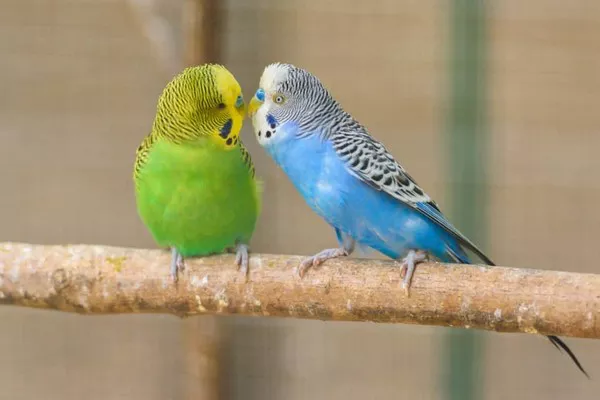African Grey Parrots are renowned for their intelligence, charm, and ability to mimic speech. However, owning these magnificent birds comes with challenges, particularly related to their biting behavior.
Understanding the reasons behind an African Grey Parrot’s biting tendency and employing effective training methods is crucial for a harmonious relationship between you and your pet.
Understanding African Grey Parrot Behavior
African Grey Parrots are highly intelligent and sensitive creatures. Biting behavior in these parrots can stem from various reasons, such as fear, stress, territoriality, or simply trying to communicate. They might resort to biting as a defense mechanism or a means to express their discomfort or dissatisfaction with a situation. Recognizing these triggers is pivotal in addressing and managing their biting tendencies.
Why Does My African Grey Keep Biting Me?
There can be various reasons why your African Grey Parrot might resort to biting. Understanding these reasons is crucial in addressing and modifying their behavior. Some common reasons for biting include:
Fear or Stress: African Grey Parrots might bite when they feel threatened or stressed. Unfamiliar situations, loud noises, or sudden movements can trigger fear, leading them to bite as a defensive reaction.
Territorial Behavior: These parrots can be territorial creatures, particularly in their living spaces. They might bite to protect their perceived territory, especially if they feel their space is being invaded.
Communication: Sometimes, African Greys resort to biting as a way to communicate their discomfort, displeasure, or need for attention. Understanding their body language and vocalizations is crucial in interpreting their communication cues.
How Do You Teach African Greys Not to Bite?
Addressing biting behavior in African Grey Parrots requires patience, consistency, and positive reinforcement. Here are some effective strategies to help train your parrot not to bite:
Identify Triggers: Understanding what triggers the biting behavior is the first step. Keep a keen eye on their body language and the surrounding environment to identify the specific situations or actions that lead to biting.
Positive Reinforcement: Reward good behavior with treats, praise, or affection. When your African Grey refrains from biting in a situation that would typically provoke it, immediately praise and reward the bird.
Desensitization: Gradually introduce your parrot to the triggers in a controlled and safe environment. For instance, if your parrot gets agitated around certain objects or situations, gradually expose them to these stimuli in a controlled manner, rewarding calm and non-biting behavior.
Socialization and Training: Regular socialization and training are crucial for reducing biting tendencies. Interaction with different people and animals, as well as obedience training, can help your African Grey become more comfortable and less prone to biting.
Establish Trust and Bond: Building a strong, trusting bond with your parrot is essential. Spend quality time with your African Grey, engage in activities, and create an environment where the bird feels secure and comfortable.
Consistency in Responses: Consistency in responses to biting is vital. Reacting in the same way to biting incidents will help your parrot understand that this behavior is not acceptable. Consistent responses, whether it’s turning away, using a cue word, or gently saying “no,” help in conveying the message.
Seek Professional Guidance: If the biting behavior persists or seems unmanageable, seeking advice from a professional avian behaviorist or veterinarian specializing in birds can provide tailored strategies and insights to address the issue effectively.
Conclusion
Training an African Grey Parrot not to bite requires dedication, patience, and a deep understanding of their behavior. By identifying triggers, employing positive reinforcement, and building a strong bond, you can effectively manage and reduce biting tendencies in these intelligent and affectionate birds. Remember, every African Grey is unique, so be patient and observant in your training efforts to ensure a happy and fulfilling relationship with your feathered companion.
Related Topics:
African Grey Parrot Feeding Guide
Ways to Entertain an African Grey Parrot
African Grey Parrot Price in India (2023)

























